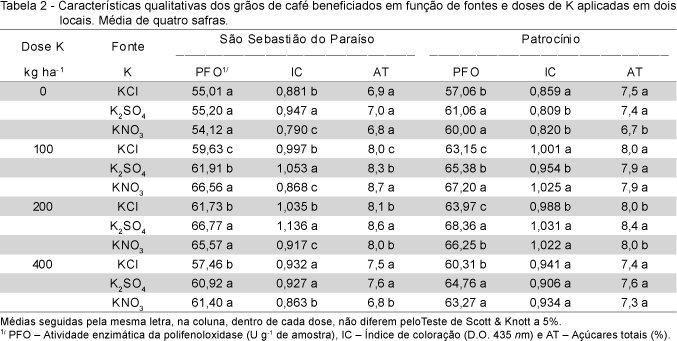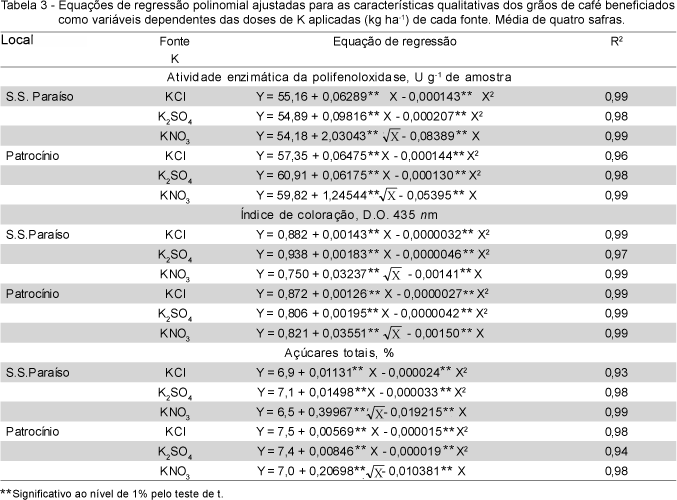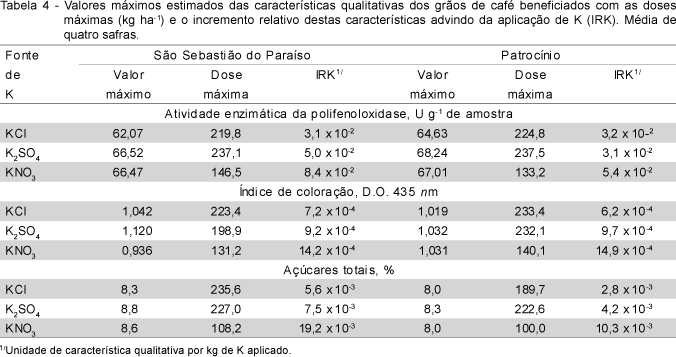Climate and soil strongly influence the quality of processed coffee (Coffea arabica L.) beans. This work studied the influence of potassium fertilization on the quality of processed coffee beans grown on two Oxisols (Rhodic Acrudox and Xanthic Acrustox). Trials were set up in a completely randomized split plot block design, to test the influence of three sources and four potassium rates - potassium chloride (KCl), potassium sulphate (K2SO4) and potassium nitrate (KNO3) at 0; 100; 200 and 400 kg ha-1, applied to plants of cv. Catuaí Vermelho (3.5 x 0.7 m; one plant per hole), on the enzyme activity of poliphenyloxidase, coloration index and total sugars of processed coffee beans. The quality of beans grown under K2SO4 and KNO3 fertilization was better than that of beans grown under KCl fertilization; results of K2SO4 and KNO3 fertilizations were significantly better for the Rhodic Acrudox. Best grain quality was observed for the application of 200 kg K ha-1 as KCl and K2SO4 and 100 kg K ha-1 as KNO3.
doses; poliphenyloxidase; coloration index; total sugars




